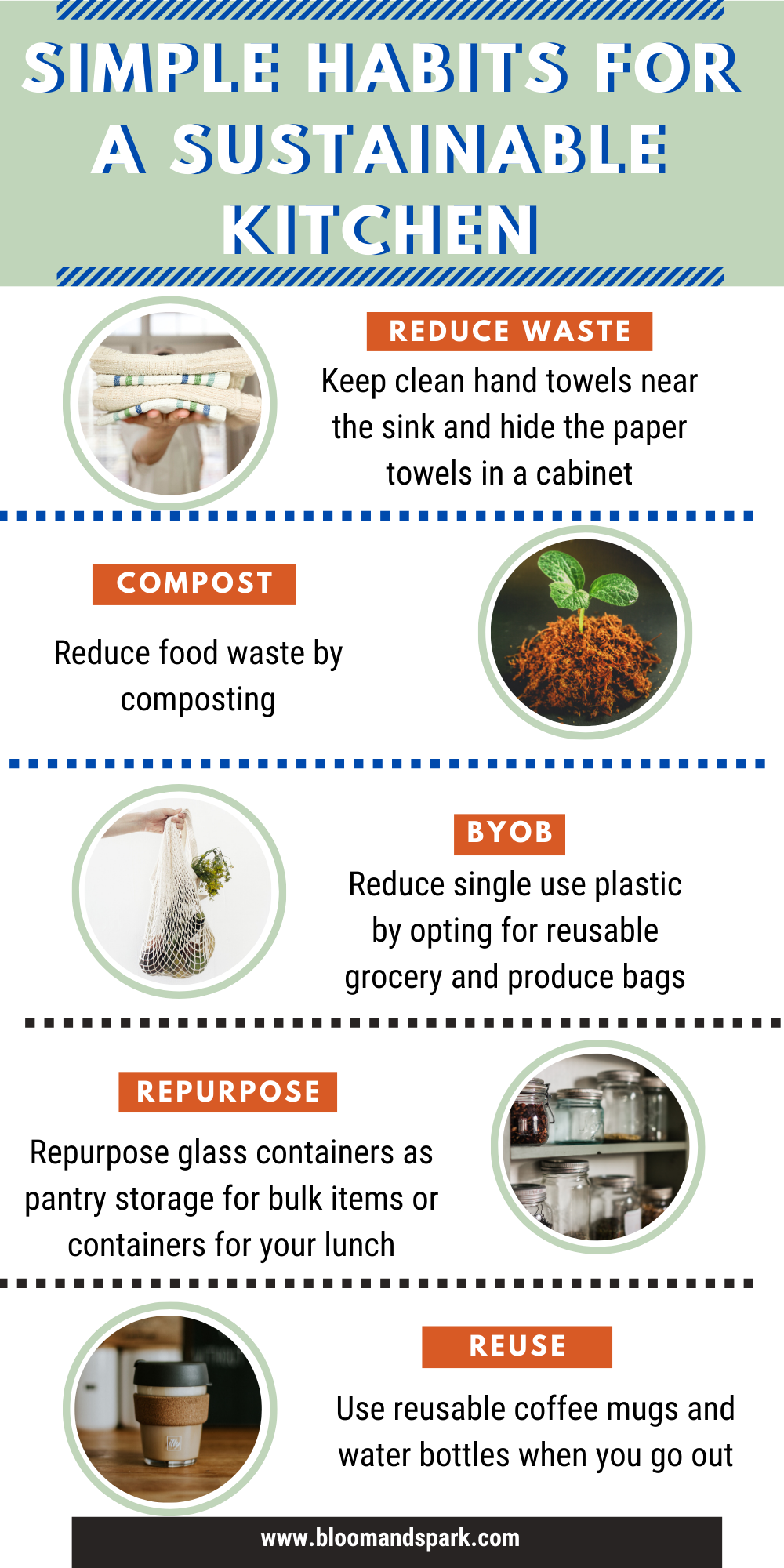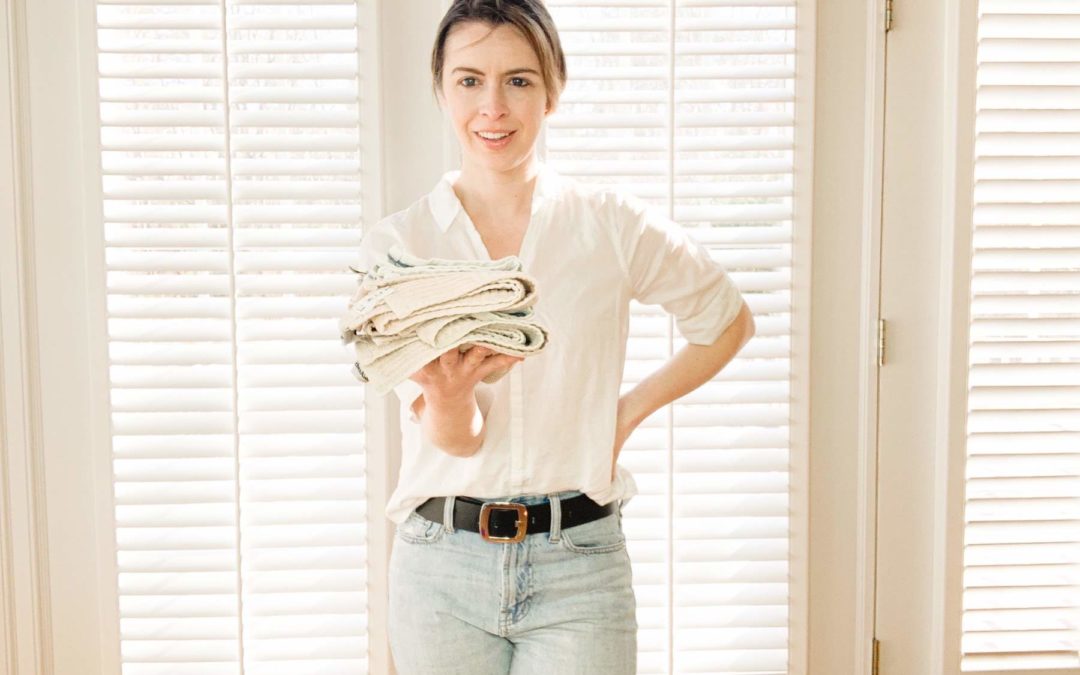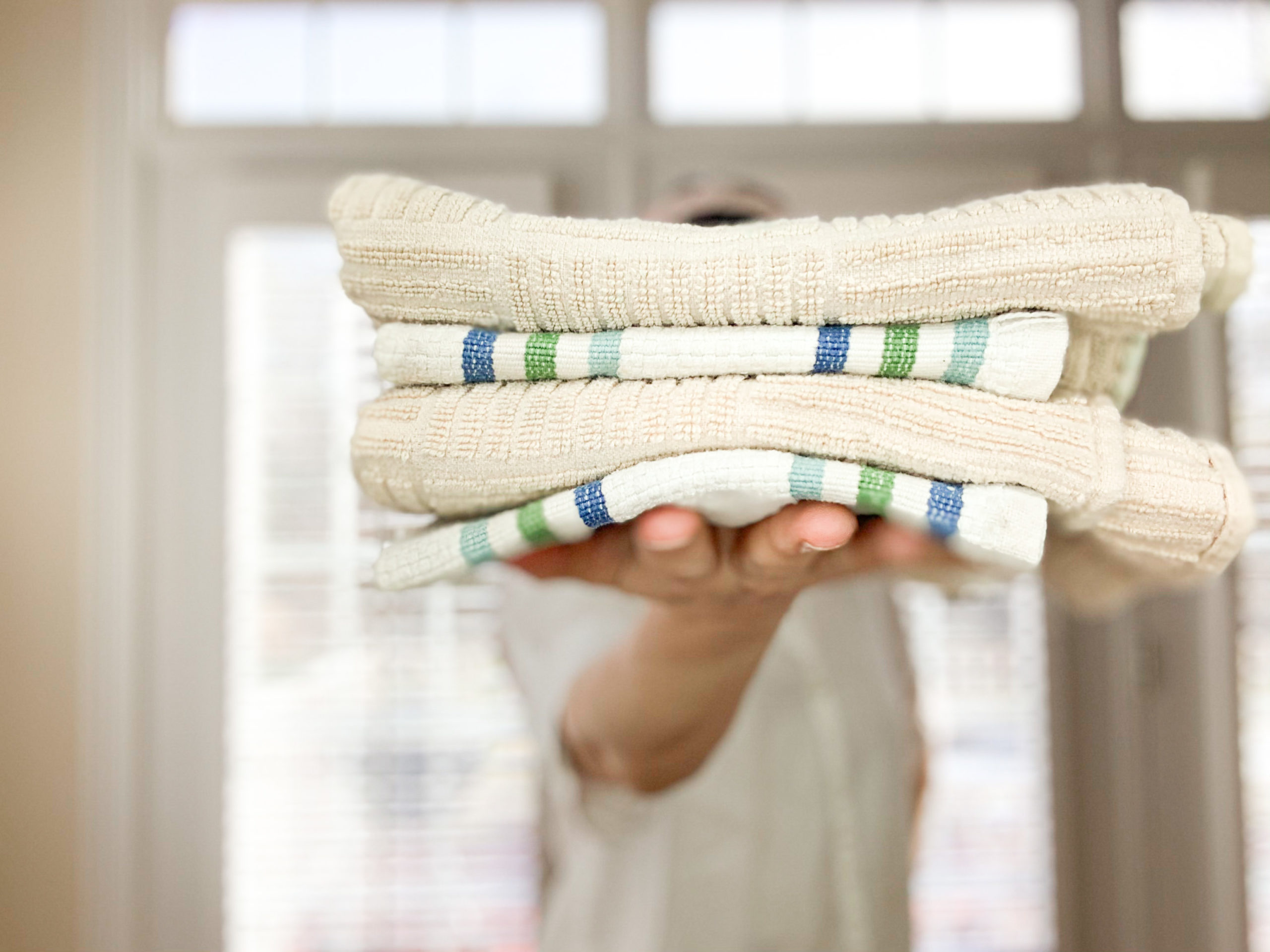Note: This post may contain affiliate links which allow me to make a small commission from products you purchase through my links. To learn how this works see my affiliate disclaimer.
Looking to have a more sustainable kitchen but don’t want to be one of those people that can fit an entire years worth of garbage in a mason jar? I hear you. It can be daunting to make changes toward sustainability, but as I’ve slowly incorporated more sustainable habits into my lifestyle I realized that it doesn’t have to be an overhaul. You can create simple habits for a sustainable kitchen that don’t feel like you have to change your entire life.
We think of recycling as one of the best things we can do for the environment. BUT….. it’s actually the very last thing you want to do before trashing an item completely. SAY WHAT?
You know that saying: REDUCE, REUSE, RECYCLE. Well the saying goes like that because it’s in order of importance.
*brain explodes*
Yeah, really! It starts with “reduce” because the best thing you can do is reduce use of unnecessary things. Ask yourself where in my life can I reduce waste? Where is there unnecessary packaging around my produce? Do I need disposable paper towels to dry my hands?
And PS, this concept doesn’t have to begin and end in the kitchen. Sustainable clothing brands are also majorly on the rise to help you create a most sustainable closet.
How to Create a Sustainable Kitchen:
Reduce
#1. Reduce paper towel use by keeping clean hand towels near the sink and hiding the paper towels in a cabinet
When we moved to the new house I started keeping clean hand towels near the sink and put the the paper towels in the cabinet below the sink so I would only use them when necessary like when my puppy has an accident in the house or when I get raw chicken juice on the counter. But a paper towel isn’t necessary for drying your hands and dishes, or giving the counter a quick wipe down. I go through about one paper towel roll every 2-3 months now. Save money, save the planet!
.
#2. Reduce food waste by composting

When I started composting I thought it was going to be so much more of a chore than it actually is. It’s pretty simple and doesn’t take much more effort than throwing food in the trash. I keep a bowl on the counter when I am cooking dinner, all the scraps from chopping veggies go into it, and at the end of the day I toss it in the compost bin outside. The bonus on top of reducing food waste is that you’ll have nice soil in a couple of months for all the plants you will eventually aquire. And another bonus is that your trash won’t smell because there’s less rotting food in it. The trash bags we send to the curb each week are about half the size of our trash last year.
#3. Reduce single use plastic by opting for reusable grocery and produce bags
Back when we lived in NY there was a law where single use plastic bags were banned due to their negative impact on the environment. Paper bags were an option but people were charged a nickel for using them so it was great incentive to remember your reusable bags.
Sadly here in Virginia I see so many people using plastic bags and it drives me bonkers because there is such a simple solution.
Reuse
After you reduce unnecessary things, then you can try to reuse things!
#4. Reuse glass containers as pantry storage for bulk items or containers for your lunch

Recently I’ve been saving my glass jars from peanut butter, salsa, and tomato sauce, then I peel off the labels, wash them out and reuse them for pantry storage of bulk items or to-go containers if I want to take a snack on the road. I haven’t had to buy tupperware in years because they perform the same task.
You can also save wine bottles and use them as candlesticks or chic water bottles to have at dinner parties. And if you’re crafty, the possibilities are endless.
Good to know…
Glass takes more energy to recycle than plastic so it’s best if you can give your glass products as long of a lifespan possible before chucking it in the recycling bin. According to The Glass Packaging Institute, recycling glass uses 66 percent of the energy it would take to manufacture new glass, on average. So while it’s good to recycle glass, try to reuse it first.
#5. Reusable coffee mugs and water bottles
I assume this is a “duh” kind of suggestion, but there’s really no reason anymore (for the most part) to buy that giant case of water bottles from Costco. When it’s absolutely necessary it’s better than being dehydrated, but I guarantee you have about 5 reusable water bottles hiding in your cabinets somewhere. I don’t even want to think about how many starbucks cups end up polluting our planet each year. If you know you’re making a trip to a coffee shop, take your to-go mug with you. Simple common sense for the win!
Recycle
Once you’ve reduced your consumption of unnecessary things, and reused what you can, only then is recycling the next best option. I always thought recycling was the best thing I could do. Nope. Exoscraps and Waste Management each have a simple list of what can and can’t be recycled.

Like it? Pin it!






